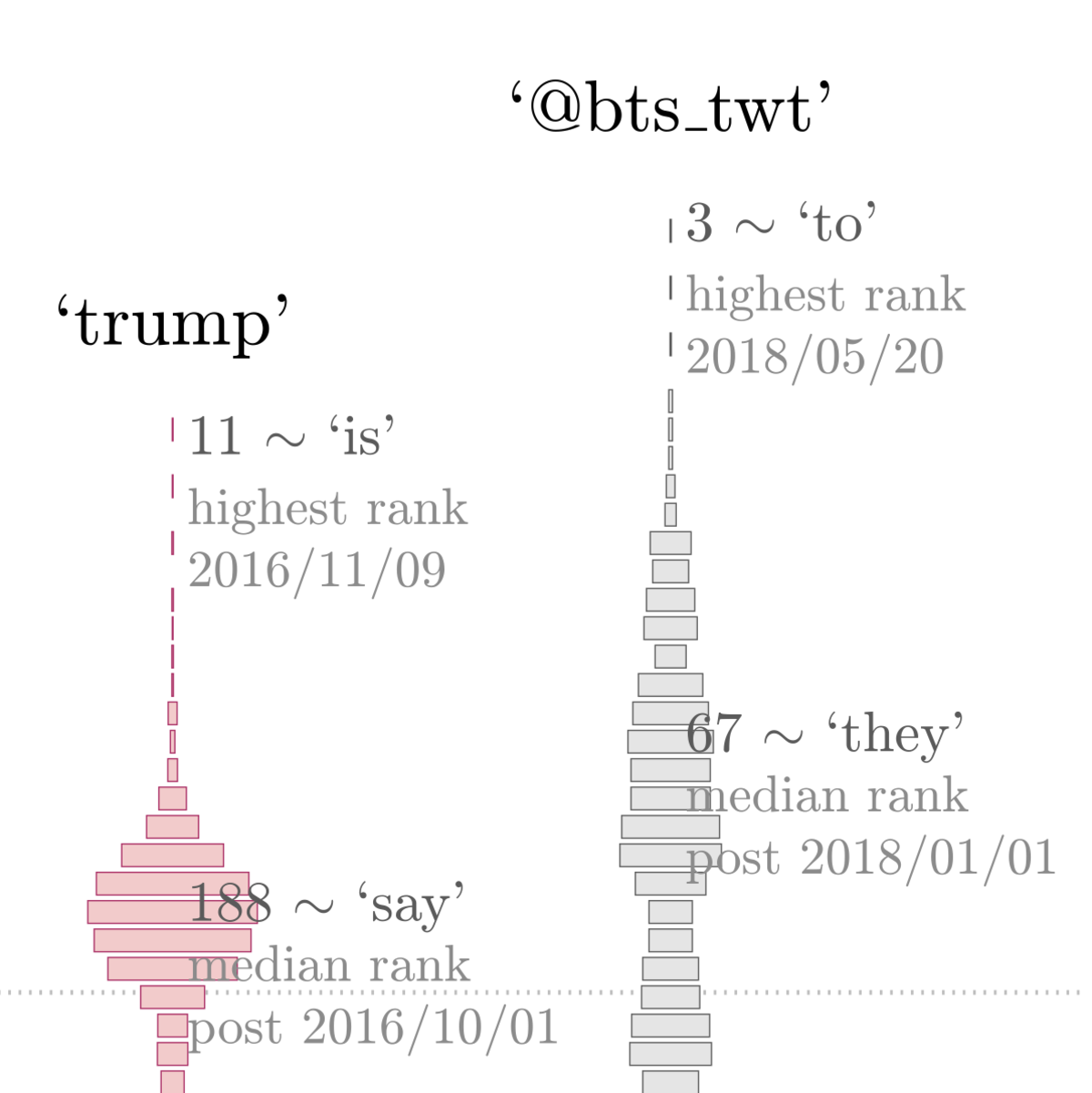Fame and Ultrafame: Measuring and comparing daily levels of 'being talked about' for United States' presidents, their rivals, God, countries, and K-pop
P. S. Dodds, J. R. Minot, M. V. Arnold, T. Alshaabi, J. L. Adams, D. R. Dewhurst, A. J. Reagan, C. M. Danforth
Journal of Quantitative Description: Digital Media, 2, , 2022

Times cited: 18
Abstract:
When building a global brand of any kind—a political actor, clothing style, or belief system—developing widespread awareness is a primary goal. Short of knowing any of the stories or products of a brand, being talked about in whatever fashion—raw fame—is, as Oscar Wilde would have it, better than not being talked about at all. Here, we measure, examine, and contrast the day-to-day raw fame dynamics on Twitter for US Presidents and major US Presidential candidates from 2008 to 2020: Barack Obama, John McCain, Mitt Romney, Hillary Clinton, Donald Trump, and Joe Biden. We assign "lexical fame" to be the number and (Zipfian) rank of the (lowercased) mentions made for each individual across all languages. We show that all five political figures have at some point reached extraordinary volume levels of what we define to be "lexical ultrafame": An overall rank of approximately 300 or less which is largely the realm of function words and demarcated by the highly stable rank of 'god'. By this measure, 'trump' has become enduringly ultrafamous, from the 2016 election on. We use typical ranks for country names and function words as standards to improve perception of scale. We quantify relative fame rates and find that in the eight weeks leading up the 2008 and 2012 elections, 'obama' held a 1000:757 volume ratio over 'mccain' and 1000:892 over 'romney', well short of the 1000:544 and 1000:504 volumes favoring 'trump' over 'hillary' and 'biden' in the 8 weeks leading up to the 2016 and 2020 elections. Finally, we track how only one other entity has more sustained ultrafame than 'trump' on Twitter: The K-pop (Korean pop) band BTS. We chart the dramatic rise of BTS, finding their Twitter handle '@bts\_twt' has been able to compete with 'a' and 'the', reaching a rank of three at the day scale and a rank of one at the quarter-hour scale. Our findings for BTS more generally point to K-pop's growing economic, social, and political power.
- This is the default HTML.
- You can replace it with your own.
- Include your own code without the HTML, Head, or Body tags.
BibTeX:
@misc{dodds2022a,
author = {Dodds, Peter Sheridan and Minot, Joshua R. and Arnold, Michael V. and Alshaabi, Thayer and Adams, Jane Lydia and Dewhurst, David Rushing and Reagan, Andrew J. and Danforth, Christopher M.},
title = {Fame and {U}ltrafame: {M}easuring and comparing daily levels of 'being talked about' for {U}nited {S}tates' presidents, their rivals, {G}od, countries, and {K}-pop},
journal = {Journal of Quantitative Description: Digital Media},
year = {2022},
volume = {2},
note = {Available online at \href{https://arxiv.org/abs/1910.00149}{https://arxiv.org/abs/1910.00149}},
}